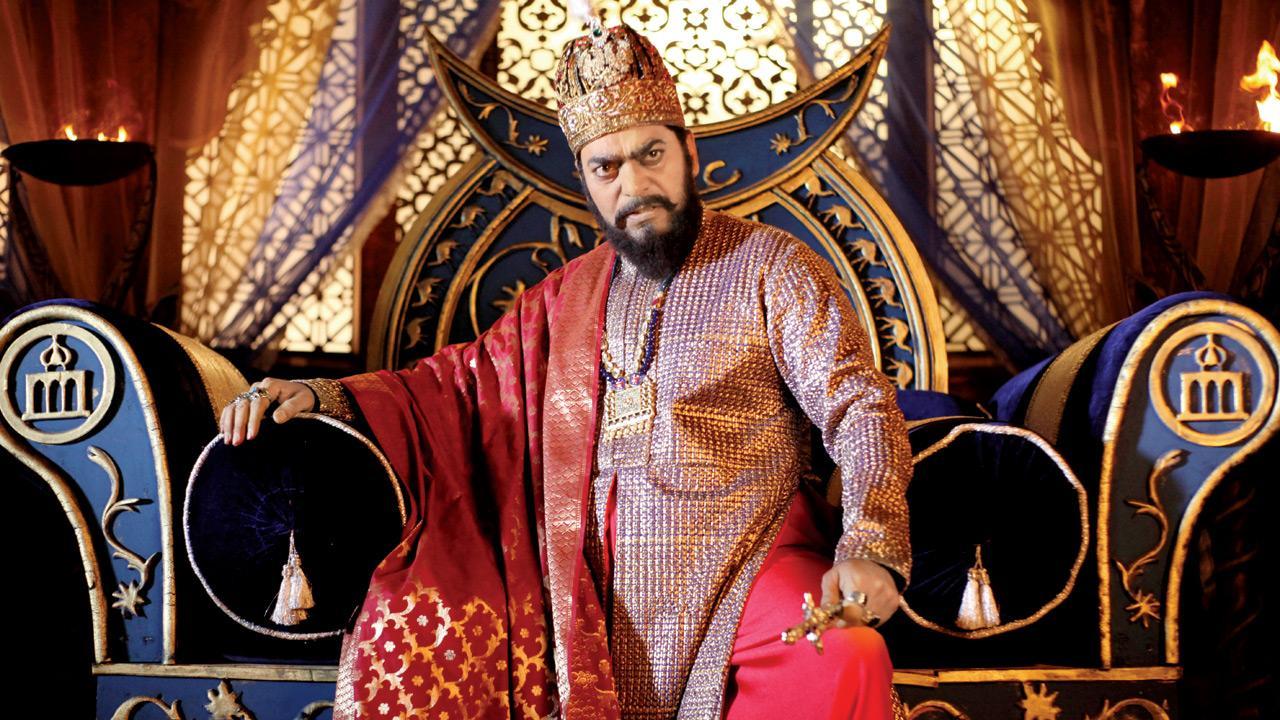I asked makers why they didn’t consider me for titular role in Chhatrasal-Ashutosh Rana
8:10 AM
Posted by Fenil Seta

As he plays Aurangzeb in Chhatrasal, Ashutosh Rana says he wished to portray Bundeli king whose heroic stories he grew up on
Letty Mariam Abraham (MID-DAY; August 17, 2021)
We’ve often seen him as the tormenting antagonist on screen, but having a conversation with the man who makes acting look like child’s play was a first. On hearing Ashutosh Rana’s passion for his craft and the work he puts in to portray a character, it made us wonder why we don’t see him more often on screen. For now though, the actor is only too happy to tell the story of Maharaja of Bundelkhand with MX Player’s Chhatrasal. Rana talks about his love for history, and portraying Aurangzeb despite being a “bhakt” of the King of Bundelkhand.
Edited excerpts from the interview.
This is your first web series. Did you have any inhibitions before making your debut?
Not in the least. I hail from Bundelkhand, and if a series is being made on the King of Bundelkhand, it was my desire to be part of that narrative. It was a moment of pride and joy for me. Some things that you love come to you much later in life. After this series, I am sure I will be offered more historical projects.
We hear that you had wished to play the titular role?
Of course. I am a bhakt of Maharaja Chhatrasal Bundela, so I asked the makers why they didn’t consider me for that part. In turn, they asked me, who would then play Aurangzeb? On hearing this, I fell silent. In his lifetime, [the King of Bundelkhand] ruled for 44 years and won 56 wars. He then challenged Aurangzeb, and freed Bundelkhand from [his grip]. A hero emerges when he wins against a villain who is bigger and more powerful than him. That’s what Maharaja Chhatrasal accomplished all his life. It would’ve been a delight to play such a phenomenal character, but it is equally amazing to play Aurangzeb.
How did you desist from portraying Aurangzeb as all black?
There are few rulers with his combination of traits. While he was a powerful ruler, he had a Sufi style to him. Though he lived in a palace, he lived as a fakir in it. Despite it all, he has been the most powerful ruler of the Mughal empire. Without moving from the throne of Delhi, he controlled almost all of India. We didn’t explore the humane side of him in this series.
Why do you think there weren’t any shows made about Maharaja Chhatrasal until now?
This was mainly due to the language barrier. Bundelkhandi is a language that is mainly spoken in Uttar Pradesh and Madhya Pradesh, and is not a popular [dialect beyond that region]. That said, his name is not lost in history because several Hindi poets have written about his bravery. I had read the works of Kavi Bhushan. His feats are recorded in history, but since we didn’t learn about him in our history textbooks, we believe he didn’t exist. We may know the name of our father, grandfather and at times even our great-grandfather, but can we name the generation before that? That doesn’t mean they didn’t exist.
As an actor, do you have a line that you would never cross?
I cannot take my or someone else’s clothes off on screen. In Dushman [1998], I played a rapist. But my character Gokul Pandit did not touch Naina or Sonia [Kajol’s characters]. If I’m able to convey the fear of rape without touching, I have achieved the goal. Aesthetics is key even to showcase some of the most horrific acts. Instead of being wild on screen, I strive to create a wild imagination, which is more [impactful]. That is why people still remember me from Dushman and Sangharsh [1999]. I play negative characters, but with a positive attitude.
This entry was posted on October 4, 2009 at 12:14 pm, and is filed under
Ashutosh Rana,
Ashutosh Rana interview,
Aurangzeb,
Bundelkhand,
Chhatrasal,
Dushman,
Interviews,
Sangharsh
. Follow any responses to this post through RSS. You can leave a response, or trackback from your own site.
Subscribe to:
Post Comments (Atom)
Post a Comment